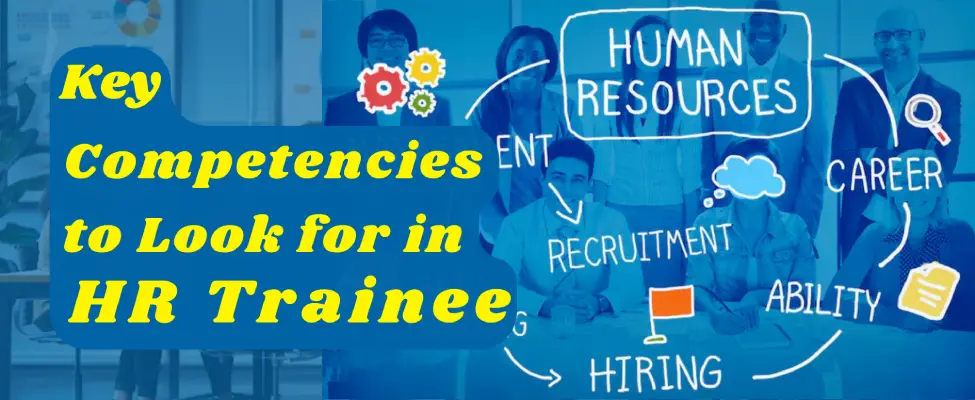Category
Reviewed by HR & Business Communication Experts Updated for 2026 Professional Communication Standards
Human Resource Management – HRM
The term “HRM” stands for Human Resource Management. HRM is all about focus on people “the employees” as company assets. Hence employees are known as human capital.
Let’s understand what is HRM and its objective in simple term: The main aim of HRM is to minimize risk and increase return on investment (ROI) and achieve the organization’s short-term and long-term goals. Here we will explore all about HRM:
What is Human Resource Management
HRM is concerned with all issues relating to hiring, compensation, performance management, organizational development, and training the employees. HRM defines a strategic approach to managing people, as well as the work culture and environment.
organization-culture work culture and environment Some of the most important tasks of HRM are to develop Policies and procedures includes recruitment training, motivation, leave policies, other workplace policies, employee-related legal compliances, organizational culture, Performance monitoring, salary structure etc.
Human Resource Management - HRM Meaning
HRM refers the method of recruiting, hiring, deploying and managing an organization's employees is known as human resource management (HRM). The HR department of an organization is normally in charge of developing, implementing and managing HR policies that regulate workers and ensure to follow policies and procedures and also the organization's interaction with its employees.
Human Resource Management Definition
A simple HRM definition is efficient management of people in an organization which can ultimately lead to contributing to achieving business goals. Human Resource Management also defined commonly as HR, it has been defined in many different ways but at the heart of every HRM definition is the human capital - the employee. HRM systems and HR policies are designed to maximize employee performance to achieve the organization’s strategic objectives.
Human Resource Management can also be defined as planning, organizing, directing, controlling, compensating, developing, integrating, maintaining, etc. of the human resources in order to achieve, the social and individual objectives of the organization.
Some of the most basic roles of HRM are to develop policies and procedures including recruitment, training, motivation, leave policies, other workplace policies, employee-related legal compliances, organizational culture, Performance monitoring, salary structure, etc.
HRM Definition by Renowned Eminent Authors
Learn what is Human Resource Management meaning and its definition given by some of the elite HR Experts & Eminent Authors :
Armstrong “HRM 'is concerned with the employment, development and reward of people in organizations and the conduct of relationships between management and the workforce”.
Robbins and Decenzo “HRM is a process of acquiring, retaining, developing, terminating and properly using the human resources in an organization”.
Dessler “HRM as a process of acquiring, training, appraising, and compensating employees, and attending to their labor relations, health and safety, and fairness concerns”.
Mathis and Jackson “HRM deals with the design of formal systems in an organization to ensure the effective and efficient use of human talents to accomplish organizational goals”.
Byars and Rue “Human Resource Management encompasses those activities designed to provide for and coordinate the human resources of an organization Human resource functions refer to those tasks and duties performed in organizations to provide for and coordinate human resources”.
Ivancevich and Glueck “Human Resource Management is the function performed in organizations’ that facilitate the most effective use of people (employees) to achieve organizational and individual goals”.
Edwin Flippo defines HRM as- “planning, organizing, directing, controlling of procurement, development, compensation, integration, maintenance and separation of human resources to the end that individual, organizational and social objectives are accomplished”
John Storeystates that “HRM is a distinctive approach to employment management which seeks to achieve competitive advantage through the strategic deployment of a highly committed and capable workforce, using an integrated array of cultural, structural and personal techniques”.
M. J. Jucious “The field of HRM involves planning, organization, directing and controlling functions of procuring, developing, maintaining and utilizing a labor force.”
Ricky W. Griffin “Human Resource Management is the set of organizational activities directed at attracting, developing and maintaining an effective workforce.”
Human Resource Management Introduction & its Origin
HRM has its origins in the industrial revolution, of 18th century Europe. The Industrial Revolution got a large number of laborers who moved from farming into mills, factories, and mines. A sudden increase in the workforce needed representation and organization. This need facilitated the organization of trade unions to represent the interests of the working people. Employers had to choose between agreeing to the demands of the unions at a cost to themselves or suffering the cost of lost production. The skilled workers had been considered to be the first to successfully get their conditions through this form of negotiations. Skilled workers were hard to replace and posed a potential threat of joining their competitors.
Simultaneously, theorists like Charles Babbage and Robert Owen highlighted that employee well-being of the employee led to excellent performance & perfect work; without healthy workers, a business firm would not exist; and they thought that an organization's success was heavily dependent on its people. The Chartered Institute of Personnel and Development (CIPD), which was founded in 1913 in England as the Welfare Workers' Association, is one of the oldest professional HR organizations. The American Society for Personnel Administration was founded in 1948, and it grew to become the largest professional HR organization, the Society for Human Resource Management (SHRM).
Origin of HRM study has its origins in organizational psychology, organizational behavior, organizational theory, and industrial psychology. Cornell University (U.S.A.) in 1945 was the world's foremost institution of higher education to focus on workplace studies at — The School of Industrial and Labour Relations.
Nature of HRM - Human Resource Management
Any and all organizations are fuelled by human beings even artificial intelligence is designed and programmed by human beings making HRM pervasive. Human resource management assumes that the people alone generate value and add to the competitive advantage of organizations making Human Resource Management a very important function in all organizations.
If a company has statutory compliance in the HR department, the employees feel assured that they will have a professional and safe working environment. Statutory compliance with payroll and employment laws instills confidence in the employees and helps build a healthy work environment and increases employee retention. Employee retention is a very important role of HRM in today’s highly competitive environment.
Fundamentals of Human Resource Management - HRM
HRM’s fundamental responsibility is efficient management of employee lifecycle while catering to the development and achievement of organizational goals. Every process of the HRM must feed into the larger organizational goal.
Recruitment
Recruitment is the process of finding and hiring candidates for a specific job role. The recruitment process from start to finish includes - creating an accurate job description, attracting the best candidates, screening to find the best fit, managing the expectations of both the employer and employee and finally successfully recruiting the best candidate.
Onboarding
Onboarding is the process of integrating a new employee into the company and its culture. It's also the process of equipping them with the information and tools needed to become productive members of a team. The more accurate and efficient the onboarding process; the sooner a new employee will be able to constructively contribute to the organization.
Training
Training is provided to the employees for updating their skills to equip them to perform with higher efficiency and skill to produce qualitatively superior work. Employee training is periodical and need-based. Training has very specific goals such as – improving proficiency, competence, the scope of work productivity, and performance efficiency. Training may be technical or domain-specific, it may also cater to other needs of an employee such as - motivation, time management, mentorships, team building, problem-solving, etc.
Evaluation
Evaluation is one of the technical roles of HR and is done in different domains - evaluation of employee performance, market evaluation for new talent and skills also evaluating the needs of the organization for more efficient functioning and higher productivity, etc. Evaluation involves comparing various functions in terms of qualification of current employees and new employees, availability of workers, job relocation, office hours, current economic scenarios, job responsibility, and value addition of each job to the organization.
Administration
Administration The administrative roles of human resource management include formulation and implementation of policies, maintenance of all employee records, HR systems, welfare activities, personnel procedure, payroll, legal compliance, etc. Personnel procedures involve the handling of promotions, relocations, discipline and disciplinary action in cases of unwanted intimacies, bullying, and so on, performance improvement, regulations, cultural and racial diversity, etc. For each of these situations to be resolved efficiently and justly, policies and procedures need to be developed and followed. Such situations have the potential of destroying an organization from within making the role of HRM very challenging and imperative.
Conclusion
Human Resource Management, human capital, talent management, personnel management, peoples operation, human capital management are some of the many terms used for HRM the world over, but at the core of all these is the Human - the person and the persons entrusted to design, develop and implement an organization's HRM policies hold the key to the growth of the organization and the employee. In a way HRM is like a mechanic - a thorough understanding of the working of the whole machine, finding the right part, keep servicing the machine, knowing when and how to upgrade the machine, and most importantly seeing to it that all the parts move in sync.
Author & Reviewer
This content is prepared and reviewed by HR and workplace communication professionals and is updated to reflect current professional Standards.
Latest JobsView All
-
Customer Support Executive... Pune 24 Feb 2026 Ascent Human Solutions Pvt. Ltd..
-
Sales Representative (On Contr... Agra 24 Feb 2026 Ascent Human Solutions Pvt. Ltd..
-
Manager Marketing (B2C) @ Delh... New Delhi 26 Feb 2026 Ascent Human Solutions Pvt. Ltd..
-
Sr Manager Quality Assurance (... New Delhi 24 Feb 2026 Ascent Human Solutions Pvt. Ltd..
-
Procurement Manager ... New Delhi 25 Feb 2026 Ascent Human Solutions Pvt. Ltd..
RELATED ARTICLES
-
Business & Management Budget-Friendly Office Cubicles: Cost-Effective Options for ... Explore
-
Law & Compliances Integrating Local Law 152 Gas Inspections Into Your Annual B... Explore
-
Human Resource Key Competencies to Look for in HR Trainees Explore
-
-
Performance management Employee Happiness and Workplace Happiness 2025 Explore
-
Performance management Boosting Employee Engagement and Knowledge Retention through... Explore
-
Human Resource Why Employee Voice Matters? Explore
-
-
-
Human Resource HR Planning - How to Manage Your Leave Policy Structure Explore
-
Human Resource Mastering Leadership: The Three C's of Success Explore
-
















